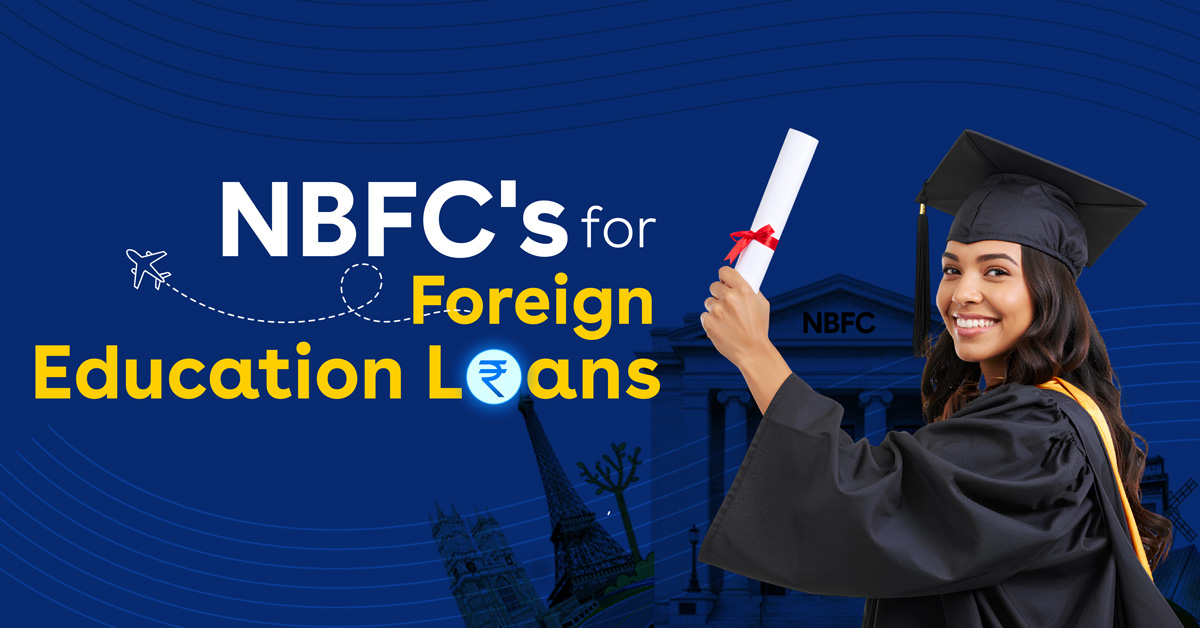Aug 03, 2023
Overseas Education Loan for Studying in Canada: A Comprehensive Guide
Canada has been a leading destination for international students for years, and this continues till this date. Its appeal lies not only in globally ranked institutions and top academic programs but also in strong government support.
Even after the Fast-track Student Direct Stream (SDS) and Nigeria Student Express (NSE) ended, Canada remained open through the regular study permit process, reinforcing its commitment to welcoming international students.
By late 2024, the Part-Time Work Cap during academic sessions increased from 20 to 24 hours per week, helping students better manage their expenses. Another major update is that all Bachelor’s Degrees from Canadian public colleges are now exempt from field-of-study restrictions for Postgraduate Work Permits (PGWP). This change expands career flexibility and improves eligibility for CRS points toward Permanent Residency.
These progressive policies contributed t over 997,820 international students choosing Canada in 2024. But while the opportunities are clear, students also need to plan finances carefully to stay on track toward their goals.
One effective way is to apply for overseas education loan for studying in Canada. But do they truly work? Which lenders are reliable? What eligibility requirements should students know?
This article explains everything you need to know about International Student Loans for Canada. Let’s get into the details and turn this goal into reality.
Cost to Study in Canada
Before diving into the intricacies of education loans, it is essential to understand the cost of studying in Canada. Tuition fees, accommodation, living expenses, and miscellaneous costs can add up, making financial planning fundamental for international students.
Tuition fees and living expenses in Canada can vary depending on the program you choose, your level of study, and the institution. Your day-to-day costs will also depend on your accommodation type and lifestyle preferences.
Still, having an approximate estimate can make planning much easier. It gives you a clear idea of what to expect and helps you prepare financially.
Here’s an overview to help you understand the typical costs you might incur while studying in Canada.
|
|
Estimated Cost (CAD) |
|
|
|
|
|
|
|
|
|
Moving on to another key requirement to keep in mind as you prepare financially for your studies in Canada.
Guaranteed Investment Certificate (GIC) to Study in Canada
International students who have paid their tuition fees to Canadian Institutions will have to create a GIC account with CAD 20,635 to show proof of their living expenses. To simplify the GIC concept for you, it is a short-term liquid investment for a period of one year offered by Canadian banks with a guaranteed rate of return. Creating a GIC account is a mandatory requirement for the visa application process to study in Canada.
GIC accounts can be created online in the banks like Scotiabank, ICICI Bank Canada, HSBC, SBI Canada Bank, and the Canadian Imperial Bank of Commerce (CIBC). Once this account is created, the student will have to deposit CAD 20,635. After the deposit is done the student will receive an 'Investment Balance Confirmation'. Students can start the visa application after this confirmation.
After arriving in Canada, students need to open a personal bank account at a branch of ICICI Bank Canada or Scotiabank. The first deposit will be CAD 4,135 plus accrued interest in the student's personal account and the remaining CAD 16,500 will be deposited in GIC. These funds are given in CAD 1,375 each month to support the student's living expenses.
Now that you have an idea of the estimated costs for both education and living, let’s take a closer look at the several types of overseas education loans available to support your plans.
Types of Overseas Education Loans to Study in Canada
If you are planning to apply for a foreign education loan to study in Canada, you'll typically come across two main options. Each is structured differently to suit varying financial needs and academic plans.
1. Secured Overseas Education Loan (Education Loan with Collateral)
A secured education loan requires the applicant to provide collateral as security against the borrowed amount. Collateral can be in the form of property, fixed deposits, or any other asset of value. Since the loan is backed by collateral, financial institutions often offer lower interest rates and higher loan amounts. Thus, the study loan for Canada interest rate will be quite realistic.
2. Unsecured Overseas Education Loan (Education Loan without Collateral)
In contrast, an unsecured education loan does not necessitate collateral. As a result, the loan approval process might be quicker, and applicants are not at risk of losing assets in case of default. However, unsecured loans usually come with higher interest rates and may have lower borrowing limits. Taking an education loan without collateral for Canada will be a suitable option for you if you don’t have any collateral security to pledge.
You may have identified the loan that suits your needs, but the next important question is—does your selected program or study level qualify for an overseas education loan? Let’s find out.
Study Levels/ Programs Eligible for Overseas Education Loan to Study in Canada
Most education loan providers extend their financial assistance to a wide range of study programs in Canada. Take a quick look at the list below to see which options are available:
Master’s Degrees
Bachelor’s Degrees
Postgraduate and Undergraduate Diploma Programs
Doctoral Programs
Vocational and Technical Courses
Before applying for a loan, it’s important to check if your chosen program is eligible for funding with your preferred lender. So, if you’re planning to take an education loan for a PG diploma in Canada or any other course, make sure to discuss the details with your lender beforehand.
Expenses Covered under Overseas Education Loan to Study in Canada
Wondering how much of your total expenses an education loan for Canada can cover? Here’s an overview of what’s included:
Tuition fees
Accommodation expenses (Rent, utilities, etc.)
Cost of study materials and books
Health insurance
Travel expenses (one-time or periodic)
Other academic-related costs
An overseas education loan can also assist with meeting the GIC requirement, which can help manage your finances while you’re in a foreign country.
Leading Banks & Financial Institutions Offering Overseas Education Loans to Study in Canada
Many banks and international leaders provide education loans for studying in Canada. Some of the well-known options include.
|
|
|
|
|
|
|
|
|
|
|
|
With the right support and guidance, the loan application process becomes smoother and can be tailored to any of these best bank for education loan for abroad studies.
Eligibility Criteria for Overseas Education Loan to Study in Canada
To qualify for an overseas education loan, applicants need to meet specific criteria. While these requirements may differ slightly between lenders, the most common ones include the following:
Indian citizenship
Acceptance into a Recognized Institution or Program in Canada
Satisfactory Academic Record
Co-Applicant's Financial Record (usually Parents or Guardians)
Collateral, if applicable
Turning to the documents needed for a loan application to seek higher education in your dream study destination.
Documents Required for Overseas Education Loan to Study in Canada
When applying for an education loan to study in Canada, you’ll usually need to provide certain documents. These typically include:
Admission Letter from a Canadian Institution
Completed Loan Application Form.
Academic Records (Transcripts, Certificates, etc.)
Passport-sized Photographs
Proof of Identity (Aadhar card, Passport, etc.)
Proof of Address (Utility bills, Rental Agreement, etc.)
Proof of Income of the Co-Applicant (Salary Slips, ITR, Business Registration Certificates, etc.)
Collateral-Related Documents, if applicable
You’ve all the information needed to enroll in an academic program in Canada and are ready to move forward. But you might be wondering if there is a way to make this entire process easier and more efficient.
Well, you’re in the right place. We will now shift our focus to the final and most important part to see how you can simplify everything.
How Élan Loans helps Students in Faster Loan Disbursements to Study in Canada?
The core mission of Élan is to support overseas aspirants across various segments by ensuring smooth access to education loans in top study destinations—and Canada is undoubtedly one of the most preferred. As a trusted platform with years of experience, here’s how we help streamline your loan disbursement process for studying in Canada.
Strong relationships with financial institutions: At Élan, we manage a high volume of loan applications regularly, which helps us maintain priority status with lenders. This means your application receives faster attention and quicker processing compared to others.
Efficient coordination with legal representatives: Our highly efficient team ensures all legal documentation is completed swiftly, often within 4 to 5 days. Our close collaboration with lawyers minimizes delays and significantly speeds up loan approvals.
Established connections with senior authorities: Our well-established network with key decision-makers ensures smooth navigation through administrative formalities. This expertise allows us to fast-track your loan disbursement.
Still wondering whether to take the next step toward your dream to study in Canada? We believe you already have all the right reasons. The next best move is to connect with our Élan team, and we’ll make sure your education loan process goes as smoothly as possible
So, reach out to us today and let’s get started!
FAQs
1. Can I switch lenders after my first disbursement if I get a better loan offer?
No, once your first disbursement is made by a particular lender, switching to another lender is generally not allowed. It’s important to finalize your lender only after comparing all offers, interest rates, margin money, and repayment flexibility. However, once you complete your course, you may explore loan transfer or refinancing options if available.
2. Do education loans for Canada cover expenses during post-study job search (after course completion)?
No, education loans typically cover only academic and living expenses during the course duration. Post-study job search periods, even if covered by a Postgraduate Work Permit (PGWP), are not financed through education loans. Students are expected to manage living expenses during this time through savings or part-time work during the course.
3. Is it possible to get a sanction letter before receiving the final admission letter?
Yes, some lenders offer pre-admission or pre-visa sanction letters based on conditional admission, entrance exam scores, or shortlisting emails. These can help you secure your Canadian study visa on time. However, final disbursement will only occur once you submit the official admission letter from a DLI (Designated Learning Institution) in Canada.
4. Can I reapply if my education loan for Canada was rejected earlier?
Yes, reapplication is possible. But you should first identify the reason for rejection—common issues include low CIBIL score, insufficient income of co-applicant, or weak academic profile. Correcting these concerns or applying with a different lender or collateral support may improve your chances the second time.
5. Are there any tax benefits for repaying an overseas education loan for Canada?
Yes, under Section 80E of the Income Tax Act, Indian taxpayers can claim tax deductions on the interest paid toward education loans for higher studies abroad. This benefit can be availed for up to 8 years and applies to both secured and unsecured loans sanctioned by recognized financial institutions.

- Share this Article
Articles on Overseas Education Loans

NBFC Foreign Education Loans vs Banks
As the number of Indian students wishing to go abroad increases..Feb 02, 2026

Pre Visa vs Post Visa Study Abroad Loan Disbursement
We all can recall the scenes from heist movies...Jan 30, 2026

How Spring 2026 Intake Impacts Abroad Education Loans
With the commencement of 2026, the Spring intake starts....Jan 30, 2026

 Login
Login